#the expedition of humphry clinker
Explore tagged Tumblr posts
Text
Among the vocal performers I had the happiness to hear the celebrated Mrs. —, whose voice was so loud and so shrill, that it made my head ake through excess of pleasure.
Tobias Smollett, The Expedition of Humphry Clinker
#the expedition of humphry clinker#tobias smollett#1771#1770s#18th century#scottish literature#queue pierce my soul
10 notes
·
View notes
Text

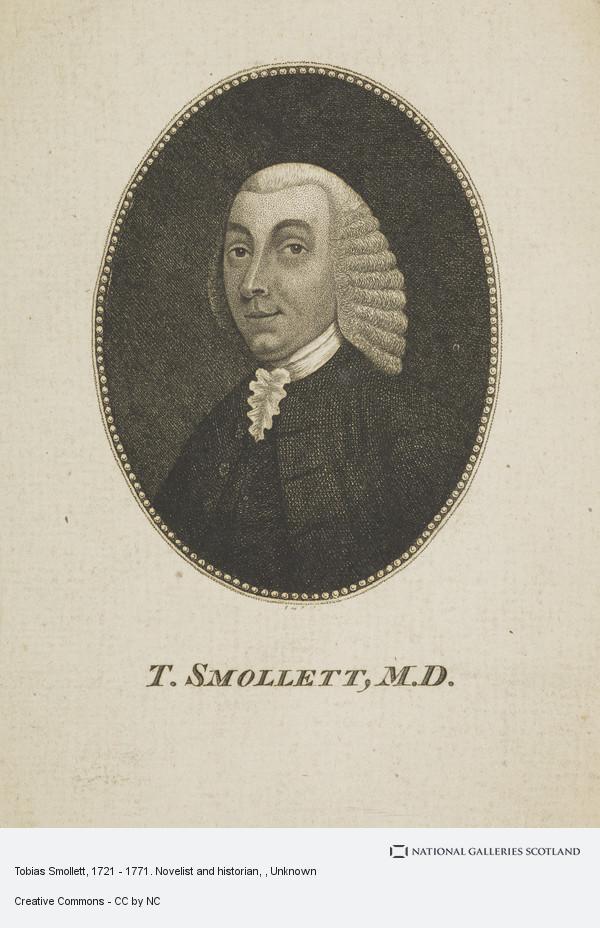


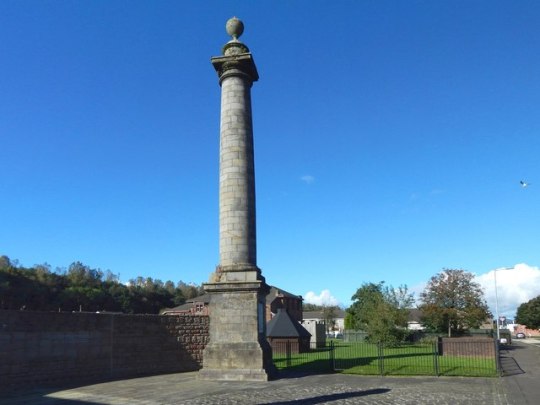
On September 17th 1771, Tobias Smollett, Scottish novelist and playwright, died.
Smollett was an author and translator of the Scottish Enlightenment who lodged in Edinburgh with his sister at St John’s Pend on the Royal Mile.He was a tremendously popular author of what are broadly termed ‘picaresque’ novels of the late eighteenth century: The Adventures of Roderick Random, The Adventures of Peregrine Pickle , The Adventures of Ferdinand Count Fathom and most famously The Expedition of Humphry Clinker.
He also translated Cervantes’ masterpiece Don Quixote in , championing the book in the English-speaking world through his popularity as a picaresque author.
Smollett was born of a good family in Dunbartonshire, on March 19, 1721, the third child of Archibald and Barbara Smollett. He studied medicine at the University of Glasgow during the 1730s, but he did not receive his formal medical degree from Marischal College, Aberdeen, until 1750. After a brief term as an apprentice surgeon in Glasgow in 1739, Smollett moved to London in order to pursue his literary ambitions. Financial necessity led him to take a post as surgeon's mate aboard H.M.S. Chichester in 1740. His grim exposure to life in the Royal Navy provided him with many of the vivid scenes of life at sea that he later incorporated into Roderick Random and other novels.
Smollett returned to London from the West Indies briefly in 1742, but he soon sailed back to Jamaica, where he married Anne Lassalls, an heiress, probably in 1743. In 1744, at the same time that he was trying to establish a medical practice in London, Smollett began to publish a series of minor poems and attempted unsuccessfully to have his first play, an ill-starred tragedy entitled The Regicide, produced. Of the occasional odes that Smollett published between 1744 and 1747, the best was his movingly patriotic The Tears of Scotland. The most noteworthy of his Juvenalian verse satires, Advice and Reproof, merely furthered his growing reputation as a quarrelsome Scotsman outraged by the refined vices of London.
For our Outlander fans, the books that is, in The Fiery Cross, Lord John Grey sends Jamie a copy of the newly published “The Expedition of Humphry Clinker” by Tobias Smollett. Further in that same book, Fraser’s Ridge library has another of Tobias Smollett’s works “The Adventures of Roderick Random“ and in A Breath of Snow and Ashes, Smollet is also mentioned.
Smollett is one of the 16 Scottish writers and poets depicted on the lower section of the Scott Monument in Princes Street, as in the second pic. He appears on the far left side of the east face. He also has a monument to his honour in beside Renton Primary School, Dunbartonshire.
7 notes
·
View notes
Text
Tobias Smollett:
The Expedition of Humphry Clinker 1771
0 notes
Text
Winnie-the-Pooh Eeyore Reads
(explanatory post)
The next spell-out prompt was Eeyore (also the last of the character spell-outs).
The Expedition of Humphry Clinker/Tobias Smollet-One of those books that is an interesting look into the past, but it lost it’s enjoyability factor by becoming very repetitive.
Elinor Oliphant Is Completely Fine/Gail Honeycutt-I saw that a lot of people disliked this, but I really enjoyed it. It wasn’t my favorite book by any means, but definitely recommended.
Yinka, Where Is Your Huzband?/Lizzie Damilola Blackburn-I decided to try adult romance which this book was marketed as but it isn’t. I wouldn’t have minded that except it became so Christian.
Heartstopper: Volume One/Alice Oseman-The only reread in this spell-out. Better than I remembered, actually.
Almost American Girl/Robin Ha-One of my top non-fictions, top graphic novels, in general top books of the year. In short, go read this because it is so good.
Epically Earnest/Molly Horan-This book was another trick marketing. It was advertised as a retelling of The Importance of Being Earnest. Since I love that play I had high hopes for this, but it wasn’t a retelling and not really the kind of book I like.
0 notes
Text
carry your mistress’s pug on a cushion on your lap, that he looks much as any passenger from the window of the coach
#animals and farms#workaday#the expedition of humphry clinker#get yourself lost in the image results for pug in a wig
180 notes
·
View notes
Text
1776 Quote 9
Obliged to keep horses, hounds, carriages, with suitable numbers of servants, and maintain an elegant table for the entertainment of his neighbors.
Page 47 paperback
(The Expedition of Humphry Clinker by Tobias Smollett)
1 note
·
View note
Text
“Bath was a setting for many novelists, with Austen and Tobias Smollett making particularly good use of the city—Austen in Northanger Abbey and Persuasion and Smollett in the very funny The Expedition of Humphry Clinker (1771). The city’s appearance in novels reflected the appeal of the new, the attraction of leisure, and its significance in social life. Bath was far from new as a settlement, going back to pre-Roman days, but it was new as an eighteenth-century experience, both as a place of leisure—indeed, the place of leisure—and as a new townscape made dramatic by its rise up an impressive hill.
By 1800, Bath had a population of about thirty-three thousand and was about the tenth largest town in England and Wales, although the numbers there fluctuated with visitors and therefore the season. Bath was scarcely unique as a fashionable spa; the town itself, as well as its waters, were a commodity to be visited and an image to be consumed. Thirty-four new spas were founded in England between 1700 and 1750 and even more in the second half of the century. Thus, Southampton, where Austen moved in 1806 and originally not associated with a spa, had its Chaleybeate spa. Moreover, among the spas, Tunbridge Wells had a major advantage over Bath due to its proximity to London.
It was the spa visited by Austen’s cousin Eliza in 1787, and, in Austen’s Lesley Castle, Tunbridge Wells, along with London and Bath, is where Margaret Lesley and Charlotte Lutterell might meet in 1792. But for having fourteen children, the Heywoods in Sanditon would have been able to afford “an occasional month at Tunbridge Wells . . . and a winter at Bath,” the combination indicating that spas could be complementary resorts as well as rivals. In Pride and Prejudice, Georgiana Darcy’s friends go to Scarborough. For a spa resort, Mrs. Elton suggests Bath or Clifton. If not London, the spas of Tunbridge Wells and Cheltenham are not “the country,” as Edmund Bertram notes. Nevertheless, Bath became the great spa where there was most to do and where you should be seen.
When Lady Anson visited Buxton in 1751, in contrast, she was bored and dissatisfied. Bath set out to make certain its visitors were neither. Although already successful, the development of Bath as a city of orderly leisure, and therefore a respectable and safe place to visit, owed much to Richard “Beau” Nash (1674–1761), who, in 1705, succeeded Captain Webster as the city’s second master of ceremonies. Nash’s “Rules” for the behavior of visitors to Bath were first published in 1707. This was part of the process by which the codification of social propriety was expressed and debated, explicitly or implicitly, in print. Novels were another aspect of this process, and the two combined in that, in fact and in fiction.
Health might be the basis of the resort, but Bath was often a destination for those seeking marriage, and this goal attracted visitors of all ages. This was the case for men and women of all ages wishing to marry and for the parents acting as chaperones for the young women. Once rejected by Emma, Philip Elton promptly sets off for Bath, where he goes to a full master of ceremonies ball, where prospective partners are introduced. The process works as intended, for his progress to an engagement with Augusta Hawkins is rapid: “the first hour of introduction had been so very soon followed by distinguishing notice . . . the rise and progress of the affair was so glorious—the steps so quick, from the accidental rencontre, the dinner at Mr Green’s, and the party at Mrs Brown’s—smiles and blushes rising in importance.”
Elton is a clergyman who stays at the White Hart, a large coaching inn, when in Bath. There was a strong clerical presence in the city, as it was the center of Lady Huntington’s evangelical “connexion” based on propriety chapels into which she placed Anglican chaplains. Augusta, once established in Surrey as Elton’s wife, recommends Bath’s waters to Mr. Woodhouse, only to be told that he had tried them without success. In a condescending manner toward Emma, Augusta goes on to draw attention to the city’s other, more social and matrimonial, attractions: “It is so cheerful a place, that it could not fail of being of use to Mr Woodhouse’s spirits, which, I understand, are sometimes much depressed. . . . As to its recommendations to you . . . the advantages of Bath to the young are pretty generally understood. It would be a charming introduction for you, who have lived so secluded a life.”
Emma was not impressed, but then Augusta is a caricature of misunderstanding and social solecism, indeed repeatedly so. Subsequently, Frank Churchill, with reference to the Eltons, comments on the misleading social show of Bath: “How well they suit one another!—Very lucky—marrying as they did, upon an acquaintance formed only in a public place!—They only knew each other, I think, a few weeks in Bath! Peculiarly lucky!—for as to any real knowledge of a person’s disposition that Bath, or any public place, can give—it is all nothing; there can be no knowledge. It is only by seeing women in their own homes, among their own set, just as they always are, that you can form any just judgment. Short of that, it is all guess and luck—and will generally be ill-luck.”
…The walks at Bath were major social attractions. By midcentury, Bath had a series of walks and gardens: the Gravel Walks and the Grove, Harrison’s walks and gardens, the Terrace Walk, the Parades, and the Spring Gardens. They were lined with luxury shops, assembly rooms, and socially acceptable accommodation. Alongside its development as a fashionable resort, the effects of such construction and activity helped make Bath an attractive topic and space for the descriptive poetry, prose, and painting of the period, as in Mary Chandler’s poem A Description of Bath (1733). Novels joined this trend.
Yet Bath also attracted moral panic, as did so many of the different aspects and sites of urban life in this far-from-secure age. As reflected in the fate of Eliza Williams, the city focused concerns about conduct and misrepresentation, both of which centered on the marriage market and thus sex. Countering perceptions of the city as a place for vice, notably gambling and sex, and the depiction of the worrying problems of luxury, the life of Bath was based on the fusion of gentility and equality. The assurance of the former made it possible, in theory, for the company to set aside status and act as equals, sidelining the concerns about social fluidity that played such a corrosive role in mixing and were actively encouraged by Beau Nash and later, in 1987, contributed to Bath being declared a UNESCO World Heritage site.
….Like the West End of London, Bath became normative as a setting for the urban play of the social elite through their repetition in novels, plays, and paintings. The town also had a rich cultural life, notably in music, and, in this respect, was more advanced than most other cities. Nevertheless, a poem printed in Swinney’s Birmingham and Stafford Chronicle on May 23, 1776, included criticism of a concert audience in Bath for not concentrating on the music, especially condemning a peer who talked during an excellent chorus.”
- Jeremy Black, “Bath: The Capital of Leisure.” in England in the Age of Austen
4 notes
·
View notes
Text
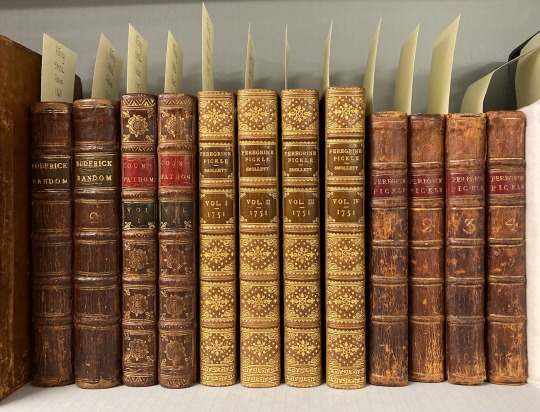
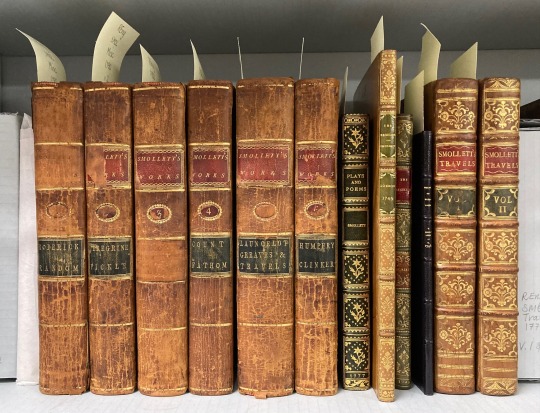
'One wit, like a knuckle of ham in soup, gives a zest and flavour to the dish, but more than one serves only to spoil the pottage'. ~ From The Expedition of Humphry Clinker (1771)
Happy 300th Birthday to the delightful Scottish author Tobias Smollett (1721-1771)!
Smollett, whose literary output included plays, poetry, travel narratives and such wonderfully picaresque novels as The Adventures of Roderick Random (1748) and The Adventures of Peregrin Pickle (1751), was a great influence on later writers such as Charles Dickens. George Orwell referred to him as, 'Scotland's best novelist'.
Shown here is a selection of Smollett's books - some in their first edition - from the Turnbull Library's Rare Books and Fine Printing Collection.
#rare books#Tobias Smollett#300th#1700s#late 1700s#English literature#literature#Scotland#Scottish authors#anniversaries
99 notes
·
View notes
Video
Expedition of Humphry Clinker | Tobias Smollett | Epistolary Fiction, Sa...
#expedition#humphry clinker#tobias smollett#epistolary fiction#speaking book#audiobook#audio book#audio books#satire
0 notes
Text

ID: 11 books stacked on top of each other. visible titles are Villette (Charlotte Bronte), A Thousand Mornings (Mary Oliver), Beloved (Toni Morrison) and The Expedition of Humphry Clinker (Tobias Smollett). The other books are turned around so their spines aren’t visible
/end ID
Everything I read in October, a full quarter of which was stuff by @johannestevans (which may or may not have singlehandedly preserved my sanity). I strongly recommend you give his stuff a try if you like gay relationships ranging the whole spectrum from impossibly adorable to incredibly messed up, well-written trans, disability and ADHD/autism representation, wingfic, vampires, complex power dynamics, contemporary urban fantasy, historical shenanigans, and/or that feeling of breezing through a story that only fanfic can give you. Plus, a lot of it’s available for free
2 notes
·
View notes
Link
Check out this listing I just added to my Poshmark closet: Humphrey Clinker.
0 notes
Text
I know you will say, G. H—- saw imperfectly through the mist of prejudice, and I am rankled by the spleen - Perhaps, you are partly in the right; for I have perceived that my opinion of mankind, like mercury in the thermometer, rises and falls according to the variations of the weather.
Tobias Smollett, The Expedition of Humphry Clinker
#the expedition of humphry clinker#tobias smollett#1771#1770s#18th century#scottish literature#queue pierce my soul
0 notes
Photo

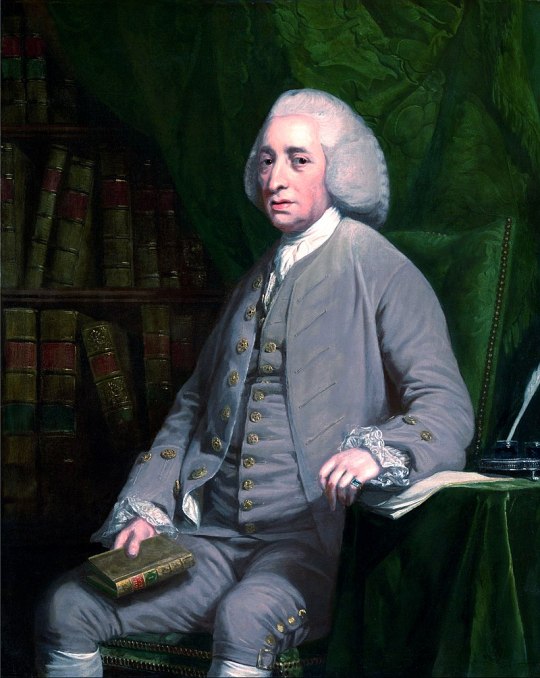

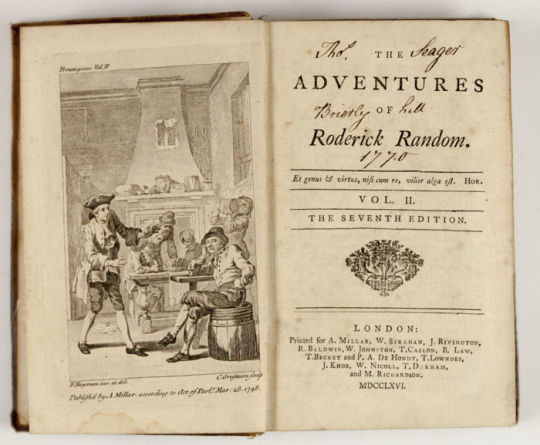
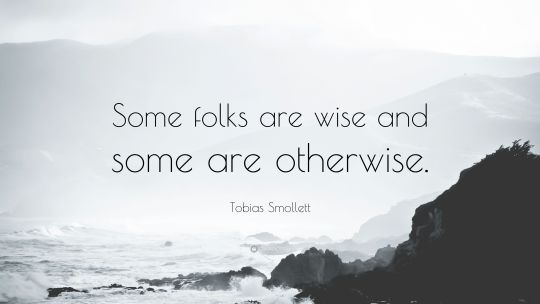
On September 17th 1771, Tobias Smollett, Scottish novelist and playwright, died.
Smollett was an author and translator of the Scottish Enlightenment who lodged in Edinburgh with his sister at St John’s Pend on the Royal Mile.He was a tremendously popular author of what are broadly termed ‘picaresque’ novels of the late eighteenth century: The Adventures of Roderick Random, The Adventures of Peregrine Pickle , The Adventures of Ferdinand Count Fathom and most famously The Expedition of Humphry Clinker.
He also translated Cervantes’ masterpiece Don Quixote in , championing the book in the English-speaking world through his popularity as a picaresque author.
Tobias was born of a good family in Dunbartonshire, on March 19, 1721, the third child of Archibald and Barbara Smollett. He studied medicine at the University of Glasgow during the 1730s, but he did not receive his formal medical degree from Marischal College, Aberdeen, until 1750. After a brief term as an apprentice surgeon in Glasgow in 1739, Smollett moved to London in order to pursue his literary ambitions. Financial necessity led him to take a post as surgeon’s mate aboard H.M.S. Chichester in 1740. His grim exposure to life in the Royal Navy provided him with many of the vivid scenes of life at sea that he later incorporated into Roderick Random and other novels.
He returned to London from the West Indies briefly in 1742, but he soon sailed back to Jamaica, where he married Anne Lassalls, an heiress, probably in 1743. In 1744, at the same time that he was trying to establish a medical practice in London, Smollett began to publish a series of minor poems and attempted unsuccessfully to have his first play, an ill-starred tragedy entitled The Regicide, produced. Of the occasional odes that Smollett published between 1744 and 1747, the best was his movingly patriotic The Tears of Scotland. The most noteworthy of his Juvenalian verse satires, Advice and Reproof, merely furthered his growing reputation as a quarrelsome Scotsman outraged by the refined vices of London.
For our Outlander fans, the books that is, in The Fiery Cross, Lord John Grey sends Jamie a copy of the newly published “The Expedition of Humphry Clinker” by Tobias Smollett. Further in that same book, Fraser’s Ridge library has another of Tobias Smollett’s works “The Adventures of Roderick Random“ and in A Breath of Snow and Ashes, Smollett is also mentioned.
Smollett is one of the 16 Scottish writers and poets depicted on the lower section of the Scott Monument in Princes Street, he also has a monument to his honour in beside Renton Primary School, Dunbartonshire.
12 notes
·
View notes
Text
Books Read In July 2022
Rereads
Neverwhere/Neil Gaiman (adult portal fantasy)-Richard is living a mostly normal life in London when he takes care of a girl he finds bleeding on the street. In quick succession, he’s promised that two assassins will kill him, his fiancee breaks up with him, and nobody can see him except the residents of another, more dangerous, London.
4.5 Stars
Chrissa Stands Strong/Mary Casanova and Richard Jones (Chrissa #2) (middle grade realistic fiction)-Chrissa’s super excited to get into the swim team, but someone starts posting mean messages on the website.
I Walk in Dread: The Diary of Deliverence Trembley, Witness to the Salem Witch Trials, Massachsetts Bay Colony, 1691/Lisa Rowe Fraustino (middle grade epistolary historical fiction)-Liv is living alone with her sister-her uncle is supposed to come back any day now, he promised-when girls her age start acting strangely. They say that witches are possessing them.
3.5 Stars
Fifteen/Beverly Cleary (young adult romance)-Jane Purdy wants to meet a boy. She’s finished her first year of high school, after all, and it would be so nice to go out riding with a boy and have everyone see her. Then she does meet a boy and everything seems too good to be true. If only she knew that he liked her, too.
Tallchief: America’s Prima Ballerina/Maria Tallchief, Rosemary Wells and Gary Kelley (picture book auto/biography)-Maria Tallchief is considered the US’s first prima ballerina. An autobiography for kids, detailing her life since she was a baby until she moved to NYC.
2.5 Stars
A Duet for Home/Karina Yan Glaser (middle grade realistic fiction)-It’s June’s first day in the homeless shelter. It’s Tyrell’s 1275th. But it’s a safe space for both of them right now. When they learn that a new project has started to get people out of homeless shelters faster without care for their wellbeing they know they have to fight it.
The Expedition of Humphry Clinker/Tobias Smollet (epistolary humor satire travel fiction)-A hypochondriac, his unmarried-but-very-much-wants-to-be sister, their college aged nephew, innocent niece and personal servants travel throughout England and Scotland in 1776.
The Help/Kathryn Stockett (adult historical fiction)-Aibileen is a Black maid in Civil Rights in the US South. She’s raising her 17th white child while her employer is building her a separate toilet. The whole city is reaching a breaking point.
Speak Up, Molly Lou Melon/Patty Lovell and David Catrow (Molly Lou Melon #3) (didactic picture book)-There’s a new boy in Molly Lou Melon’s school. When one of her friends teases him she has to speak up.
Yinka, Where Is Your Huzband?/Lizzie Damilola Blackburn (adult coming-of-age novel)-Yinka’s mother is praying over to get a husband. Her sister is pregnant. Her cousin is engaged. She decides to get a boyfriend by the time her cousin’s wedding comes, six months away.
2 Stars
Stand Tall, Molly Lou Melon/Patty Lovell and David Catrow (Molly Lou Melon #1) (didactic picture book)-Molly Lou Melon is different from the other kids. But when a boy in her new school starts teasing her she knows exactly what to do.
Warriors in Winter/Mary Pope Osborne and A.G. Ford (Magic Tree House #32) (children’s fantasy time travel)-Jack and Annie are sent to a Roman base-without a book! They have a mission to complete before they get executed as spies or deserters.
1.5 Stars
The Day You Begin/Jacqueline Woodson and Rafael López (didactic picture book)-A book about how everyone is different and that’s fine.
In Other Lands/Sarah Rees Brennan (young adult/new adult fantasy coming-of-age)-Elliot thought he’d like being in magic land, but nearly everyone is constantly training for war and he’s a sworn pacifist. So he decides to eliminate all war by the time he graduates magic school. Oh, and get Serene to date him.
1 note
·
View note
Text
have extravagantly delicate senses, in both soul and body
#disease and death#etiquette and lifestyle#literary figures#tobias smollett#the expedition of humphry clinker#matthew bramble
304 notes
·
View notes
Note
Volume and Manuscript for the book ask.
Hiya! Thanks for the book ask!
Volume - The last book you dnf?
Out of sheer boredom? I really do try to stick with books even if they bore me, out if stubbornness probably. But I did quit on James Boswell’s Journal of a Tour to the Hebrides. It’s dull as mud, like ‘are you even trying to be entertaining here?’ If you want to read about folks going on holiday to Scotland in the 18th century, go for The Expedition of Humphry Clinker by Tobias Smollett instead, for it will give you a laugh. I also put down Neil Gaiman’s Smoke and Mirrors short stories because they made me queasy. I really liked the first one about the wedding present, but they just got bleaker and bleaker until I was eating lunch reading some kind of bad trip about an Ant-Queen Woman biting off a very horny man’s dick. So I left it at that.Also The Exorcist.
Manuscript - book you want to read but are intimidated by?
Ionesco’s Rhinoceros. It’s funny and short, but it’s in French and I have to keep looking up words and I’m lazy. I’m intimidated by work.
1 note
·
View note